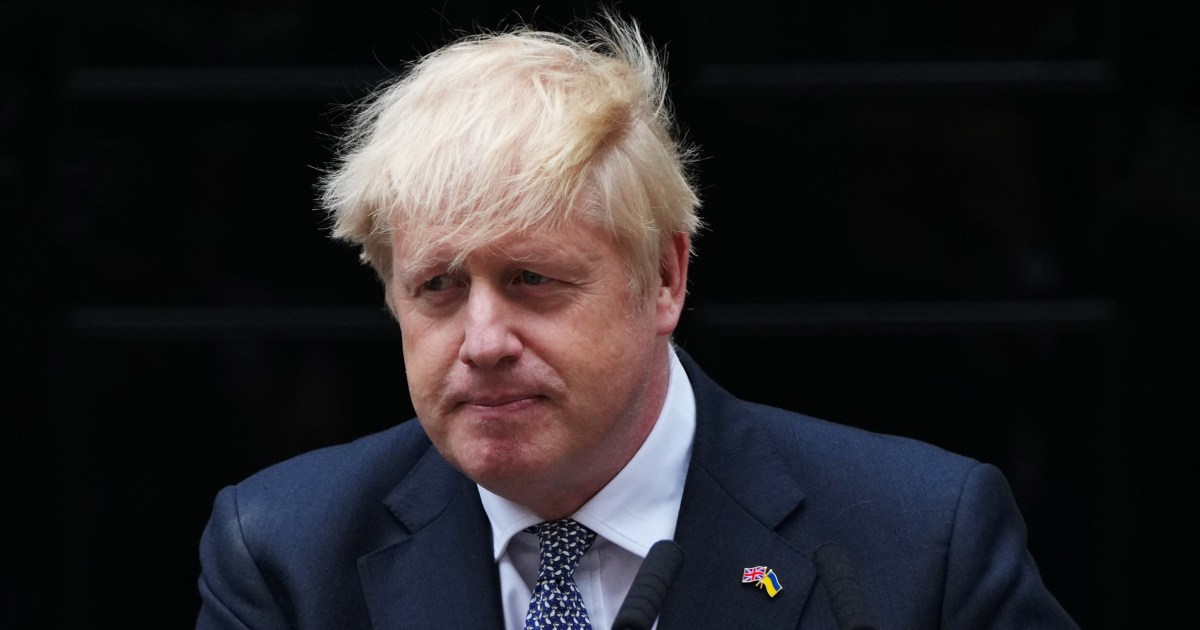
www.nbcnews.com
The dust is settling on British Boris Johnson's chaotic rule. What now?
What happens now Boris Johnson says he will resign as British prime minister and Conservative Party leader?
International
LONDON — Boris Johnson’s prime ministership has self-destructed in spectacular style. Britain must now dust itself off, pick through the rubble and decide what comes next.
It is a remarkable fall from grace for Johnson, who swept to an expansive electoral victory in 2019, leading to predictions that his political empire could span a decade or more. Instead, it has crumbled amid scandal and recrimination, with his own party revolting against him.
Britain now needs a new leader, but how it will get there is far from certain. Prime ministers aren’t directly elected by the country’s 68 million people but rather chosen by the party that elects the most lawmakers in the general election. Right now, that’s the Conservative Party, which elected the most in the previous election.
Johnson’s successor will be chosen, as he was in 2019, first by fellow lawmakers who will whittle the candidates down to a final runoff between two and then by a postal ballot among the party’s 180,000 or so members. The country isn’t due another general election until 2025.
The process is likely to take several weeks, determined by a timetable set by the opaque 1922 Committee, which represents “backbench” lawmakers who aren’t on the government payroll.
But that is where Johnson’s resignation itself has caused controversy. He said in his speech Thursday that he plans to stay in his post until a successor is chosen, but many of his Conservative colleagues and the opposition Labour Party want him gone now.
Conservative former Prime Minister John Major wrote to party officials soon after to say Johnson should go immediately “for the overall wellbeing of the country.” Labour Party leader Keir Starmer told NBC News’ British partner, Sky News, that he rejected “this nonsense about clinging on for a few months.”
Labour has warned that if Johnson does try to hang on, it will call a vote of confidence in the House of Commons — another mechanism with which leaders can be ousted. If Johnson were to lose such a vote, he would be expected to either resign or dissolve Parliament and call a general election — reshuffling the entire parliamentary pack and starting again.
Furthermore, if Johnson did lose a motion of confidence in the House of Commons, which includes lawmakers of all parties, not just Conservative ones, he would have to resign as prime minister, not just as party leader, said Robert Hazell, a professor of government at University College London. But his opponents would have to present a realistic interim alternative, “because we must always have a prime minister,” he said.
There were rumors that Johnson — in a last act of desperation — might have sought to call a general election himself. However, that would require him to ask Queen Elizabeth II to dissolve Parliament.
She could have refused this request because of something called the “Lascelles Principles” — named after the queen’s former private secretary Alan “Tommy” Lascelles, featured in Netflix’s “The Crown.” They say she can decline if the current Parliament is still “vital, viable, and capable of doing its job.”
Forcing the apolitical, unelected queen into the engine room of political decision-making could have caused a constitutional crisis.
Even now, it’s unclear how Johnson’s lame-duck government will function. There have been so many resignations in the past 48 hours — more than 50 at the time of writing — that there don’t appear to be enough warm bodies to fill the vacancies. He has tried to cobble together a new Cabinet by filling the major roles, but it’s unclear whether it can govern effectively.
























































